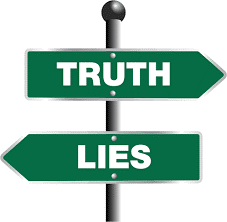 We’ve a story to tell to the Nations…
We’ve a story to tell to the Nations…
N A H U M
I usually post a blog a month. This one is for April but I decided to post early as people have more time to study. I included notes from the entire book of Nahum. It is long but life-changing. I promise your view of God and trust will increase if you ponder and study this book. Happy reading. It’s not a lightweight book but will yield great results in your life.
Nahum is a little known or preached book. For those of you old enough to remember Paul Harvey, this is the “rest of the story” regarding Ninevah. After Jonah preached there, the people and the King repented but it was short lived – 100 years later they were back to their old antics. Lest we think it was just being lukewarm or culturally not PC, it was more than that. This group of people were involved in prostitution, killing children, skinning men alive and dismembering people they didn’t like. I’m so glad Micah is placed between these two books because we need a stronger reminder then and NOW that God is just and will NOT let sin go unpunished.
Unlike Jonah, who was strange with wild miracles under his belt, Nahum was cut from a different cloth and his life can be traced historically. Both were needed to reach Ninvevah. Perhaps we know less about Jonah because the scholars, like Jonah, could not tolerate these “unsavory individuals” getting converted. People are not pleased when their enemies avoid wrath. Nahum does a great poetic work as he explains his “burden”, the prophetic vision. At first and second read it seems discouraging – at least if you are a Ninevite. The punishments are deserved and final. Nahum will cajole them to rally if perchance something will change, while still knowing God has reached His limit.
Typically you won’t hear this book preached to encourage the saints. This is a dark book of atrocities and judgement, however, If we draw out the pattern of God’s oversight, we will see clearly His intent to bless any who turn to Him. Can God move even in dark seasons and trials? Even in this book we can come to know and love the God who oversees everything.
This book is powerful if you want to know and clearly see God’s heart.
Anxiety in this book is off the charts as people process God’s wrath. When people are running to idols, rejecting God and repeating sinful practices, it is imperative that we look for God, look to God. Nahum does that for the people of his generation and for us. Many know about God but wouldn’t you like to know what He’s like and how He acts? These are some of the things I learned about God while reading this book:
I: The Lord is a Jealous God
He does not like His people to serve idols. That does not just mean foreign gods, it also means when our jobs become gods, when our family comes first, when cars, money, a church building, a hobby, persons or fame separate us from our One True Love.
II. The Lord is an Avenger.
He takes vengeance on His foes and vents His wrath on His enemies. Wow. That means God is not sitting back just hoping we all sing Kumbaya and endure. God actually pursues His enemies into darkness. We trust God has our back, we trust He is making all things work together. According to Nahum, we can also trust that God will vent His wrath and avenge us, which seems foreign to “good Christian thinking.” That is the impetus for moving on (complete trust), not pausing to confront accusers or scoffers, we move forward in Gods grace to do His bidding. A NT verse comes to mind, “Do not be deceived, God is not mocked, we will reap what we sow (for good or bad).” Gal.6:7-9.
III. The Lord is slow to Anger
We saw that when Jonah preached and God spared them but here –their time is up and we are told that God will “not leave the guilty unpunished.” The thought is developed that yes He is slow to anger but when it comes –it comes with might and power. God releasing His wrath against the Ninevites was part of His power and mercy towards the people of Judah/ Israel. One punishment would bring deliverance to those who suffered and it would be swift. Please keep in mind as you read this that the cross will bring forth both God’s justice and mercy.
IV. The Lord is GREAT in power
I think the following verses are definitions of His greatness. He is above all, beneath all and everything in between. Note the contrast– the sky, the sea and flowers. That’s full circle greatness. I loved meditating on those verses. Surely THAT God is in control!
3 The Lord is slow to anger but great in power;
His way is in the whirlwind and the storm,
and clouds are the dust of His feet.
4 He rebukes the sea and dries it up;
He makes all the rivers run dry.
Bashan and Carmel wither
and the blossoms of Lebanon fade.
5 The mountains quake before Him
and the hills melt away.
The earth trembles at His presence,
V. The Lord is Good
Is He? That’s what the enemy asks during crisis times. We need to settle that in our hearts long before the pink slip comes, long before the virus is announced. It is difficult to see goodness when in trial, especially if it was God who brought it on. If we are opposed to God and repent, His hand of favor will once again rest on us. If we return to the Lord we no longer have to question if we are being judged or sifted. For those who seek God, for those who walk in His ways, the Bible states they will see His goodness. Nahum defines God’s goodness in this way:
God is a refuge in times of trouble.
He cares for (knows) those who trust in Him,
but with an overwhelming flood
He will make an end of Nineveh;
He will pursue His foes into the realm of darkness.
Not only is God a refuge during tough times – times of trials and tribulation, may I also add pandemics, He knows His people. He is specifically good because He knows each persons’ needs, wants and cares for them. How difficult it must have been for Nahum to prophesy to both groups of people knowing some would choose to reject God and suffer the consequences.
Whatever they plot (imagine strongly) against the Lord
He will bring to an end; trouble will NOT come a second time.
The verb in Hebrew (plot) is an extreme one and reveals to us that the people in Ninevah were actively seeking evil, actively trying to go against God and His people to achieve their own ends. Talk about a political nightmare. Can you imagine in this day and age people actually plotting against someone, treason with leaders, hoping they fall? Sounds familiar doesn’t it? The prophetic voice of Nahum must have sounded religious, probably out of step with the popular crowd making decisions. If only they had realized it was not Nahums’ message that was being proclaimed but Gods’. The lack of fear, reverence and awe of God is evident. In our vernacular we could read this verse:
It ENDS HERE AND IT ENDS NOW !!!
When I read these verses to my children, I shouted in my best “mama is mad” voice. It startled them. They said they did not think of God being mad. They did not realize that was possible as He is always represented as loving and patient. Hmm? (Side note: all books of the Bible need to be taught so we see all of who God wants to be in our lives). We talked about obedience and that even God has a limit to nonsense. Why do we portray God as a milquetoast? Why do we make Him out to be some elderly sweet grandpa without teeth – or justice? Where there is no restraint, evil abounds. Throughout the years, God has sent preachers, teachers and prophets to let the people know Gods heart. In these last days, Hebrews 1:2 tells us God has sent His son to speak to us. The message remains pretty clear – follow God and obey Him and you will be blessed. If you depart and do cruel things you will be pursued and punished. All the Netflix in the world can’t silence that, all the music can’t drown it out.
Here is the big question for us this month: Can ONE person make an impact? In a family, a town, a city, a nation? One?
11 From you, Nineveh, has one come forth
who plots evil against the Lord
and devises wicked plans. 12 This is what the Lord says:
“Although they have allies and are numerous,
they will be destroyed and pass away.
Although I have afflicted you, Judah,
I will afflict you no more.
We can be one to harm. That’s tragic.
VI. The Lord is a Yoke Breaker
13 Now I will break their yoke from your neck
and tear your shackles away.” A prophecy of hope! NOW!
The people of Ninevah, Judah and Israel lived in wicked times, chaos and turmoil. How bad do you have to be for God to point you out as the most wicked or vile? This one who appeared in Ninevah made a difference but for evil! He (or possibly she) had literally planned to be against God, plotted and devised schemes that would hurt God’s heart and harm other people. Evil plots the second you want to harm another, not when full blown. Wickedness begins the second you wish others injury, not when the event occurs. Remember the wickedness in this city was dismembering innocent people and skinning alive their adversaries. They were cruel tyrants. One person had an affect that multiplied throughout the whole city. I really hope it was not a wayward believer. I’d like to believe it was someone from another ideology, but it may have been someone discouraged, rejected or lost in their faith. When we fall away from God we can not predict our outcome or the others we negatively influence. We need to take that trajectory seriously in light of Nahums words. Apostasy, a falling away will happen – we determine daily if that will be us. Father intervene!
VII. The Lord is a Good News / Peace Giver
15 Look, there on the mountains,
the feet of One who brings good news,
who proclaims peace!
Celebrate your festivals, Judah,
and radically fulfill your vows. Keep praising – in spite of the tribulation!
I’ve read this numerous times but never stopped to understand it. Why feet? Feet are what we run with, position to stand with, provide motion forward. It is not knees sitting in a recliner that Nahum sees but feet positioned at a top level. Isaiah 52:7 states, “How beautiful are the feet of those who bring good news.” When you live in a climate of death, torture and idolatry you take note of those who have something uplifting to say or do! I believe this refers to the Lord but it may have referred to a godly messenger. The word bring here is the Hebrew word basar (pronounced bah sayer). It is a participle that screams actions. The One is massively, with excitement and passion bringing good news, not grudgingly, out of compulsion or because someone at their church told them it was a good idea. My early ministry was in children’s church so when I hear this I think of a little sheep preaching the good news – a “bah” sayer. This person is rosy, fresh, brings gladness, announces beauty and is joyful. Wow! That’s the person I want in my corner of the world when darkness comes near. That’s the one I want to hear from when all other voices cause me fear or anxiety. Oh that the world could have more basars! Oh that someone would stand on their mountain and proclaim peace. Did you catch that? I want that, I want someone to be that for me says the little sheep. We need to be praying “Lord, make me a basar and lead me to those who need Your message.”
Take time to adjust your prayer today.
Before the Pandemic started we had plans to help out a church plant. We had prayed for their city and made plans to advertise church services. We had looked forward to this event for months. When people are quarantined it’s hard to reach them. We began to pray for wisdom. Lord, help us to be “basar” (ones bringing good news) in our generation.
The one proclaiming the good news is sharing shalom peace. We know what peace feels like, we understand Christ to be our peace but how do we define that? The commentary’s say it means “Completeness, soundness, tranquility, friendship, favor, peace from war and rest. “It refers to wholeness. The one on the mountain told the people how to find and have peace. That’s good news! Speaking about solutions and sharing with people that ALL peace is found in God and His son Jesus Christ goes way back to Nahum. Will we preach, will we go, will we publish? It mattered then, it matters NOW.
VIII. The Lord God is a Restorer
The text goes on to warn Ninevah and comfort Jacob. Were they wondering, “what will happen to us?” Did they consider the murder they saw around them, the chaos and think they were next? God, in the midst of evil, unrepentant Ninevah tells them thru Nahum, “The Lord will restore the splendor of Jacob like the splendor of Israel, though destroyers have laid them waste and have ruined their vines.” We forget that these powerful assurances came during their darkness – not on a sunny day in the middle of a church service. While their neighbors were being tortured and infants were being dashed against the rocks, they were hearing promises. We have a crippled faith if we only believe promises in times of prosperity.
I’m not sure if this is the place to say this but have you ever considered that we are not like Judah but Ninevah? If we have not established a relationship with God or given our lives to Him (see the how to get to Heaven page on this website) it’s possible we should be hearing the judgements given to Ninevah. I don’t want to falsely think all reading this blog are the ones receiving the good promises. If that is you, go back and read Nahum. Read both sides so you know where you will stand on that day. Are we more like the evil, unrepentant Ninevites or are we more like Judah and Israel when they were restored to God? It’s worth asking the question.
You’ll note I am skipping the part where God states they are vile and “I am against you,” declares the Lord Almighty. God spells out how angry He is about how they treat infants. Is that true today? Yes, according to the Bible. He’s tired of their prostitution and idolatry (rebellion). It is spelled out in this book what God will do after He has warned and re-warned His people. I think of the many calls to rest in the Old Testament – they were warned. After they mock, ignore and trample God’s word they are put into a mandatory rest in Exile in Babylon for as many years as they had ignored Him. God will have His way and as earlier stated, when it ends, it ends immediately. There will NOT be a second time for trouble.
I’m a wife, mom and blogger. I don’t claim to be a prophetic voice. I can however read Nahum and see similarities in our nation. Do we as a family, church, city or nation anger God by atrocities or sins? Have we ignored multiple warnings in our government and school system? I’ll let your heart answer that for you and yours.
I believe there is another attribute of God (though silent in the text) that shouts from the end of this book. In 3, vs. 17 f it states: “Your guards and officials are like locusts – fleeting.” “Your shepherds slumber and your nobles lie down to rest, …no one can bring you healing.” Tough times. It seems in every area the Ninevites had ignored God’s word and their fractured society was the result. God was seeing, was watching, was guarding, was shepherding. How awesome that God sends the forgiving one, the delivering one, the healing one and the saving One.
IX. The Lord GOD is Active
After reading this book, I KNOW that the God who was watching over Judah and Israel will “never leave or forsake us”. This God neither sleeps nor slumbers. The Lord is our Shepherd and Jesus tells us that He is the Good Shepherd. What a contrast! This God also offers Healing because of the cross. Communion reminds us of Christs amazing grace and blood protection. Under the law in the Old Testament and in the Saviors words in the NT, God is telling us this is who He is and wants to be for us. Many need to hear that during this pandemic- it’s good news, its GREAT news! In this hour, in this nation and in our hearts, we have a choice – will we repent like Jonah’s Ninevah or remain hard hearted like Nahum’s? Will we stand and “basar”– bringing GOOD news and proclaiming peace or cower in fear and isolation? Nahum’s challenge is fresh today. We have a choice. We can avert wrath. We can be like the One who impacts ALL- for Good.
I urge you to reflect on the judgments against Ninevah in this book. I implore you to meditate on the characteristics of God that are so evident. Get to know the God of this book and the God of your circumstances. He wants to know you and be known by you. I believe He also wants those living in darkness and tribulation to see His goodness and greatness. Now you know some of His characteristics – Go, SHARE the Good news!!!
“Lord, speak this to our hearts anew and afresh. We choose YOU.”
RenaeRoche2020






 LOVE ONE ANOTHER LOVE ONE ANOTHER
LOVE ONE ANOTHER LOVE ONE ANOTHER
 We’ve a story to tell to the Nations…
We’ve a story to tell to the Nations…